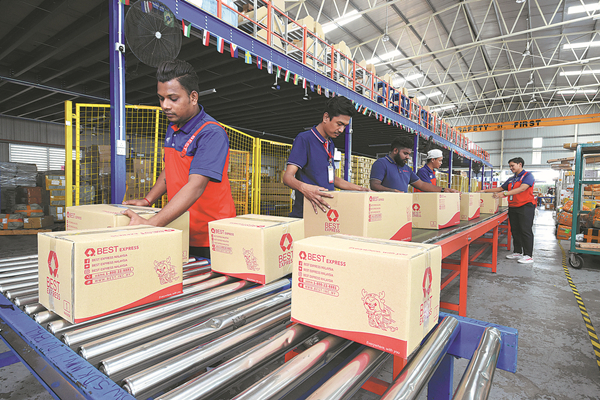Cross-border e-commerce pilot zones established in all Zhejiang cities
China's State Council has approved setting up more cross-border e-commerce pilot zones in 27 cities and regions as part of efforts to stabilize foreign trade and foreign investments.
The new pilot zones, including the two cities of Jinhua and Zhoushan in Zhejiang province, will replicate and advance the experiences of the previous five batches of pilot zones, according to a statement released by the State Council.
China's cross-border e-commerce has been expanding much faster than overall foreign trade, and its share in overall foreign trade has gone up significantly.
China's State Council established 105 cross-border e-commerce pilot zones in the previous five batches. The new business model has become a powerful force driving China's foreign trade growth.
The country's first cross-border e-commerce pilot zone was founded in Hangzhou, capital of Zhejiang, in 2015.
Presently, 10 prefecture-level cities in Zhejiang each have one pilot zone, with Jinhua being the only that has two.
In 2021, the province's cross-border e-commerce sectors generated 330.29 billion yuan ($51.95 billion) in imports and exports, up 30.7 percent from the year before, accounting for roughly one sixth of the national aggregate.
Exports for the province's cross-border e-commerce sectors stood at 243.02 billion yuan in 2021, up 39.3 percent from the year before. Zhejiang is currently home to 149,000 online stores that are involved in exportation.

Workers process packages delivered from China at BEST Inc's sorting center in Kuala Lumpur, Malaysia. The Hangzhou, Zhejiang province-based company has launched a cross-border logistics service to help consumers in Southeast Asian countries purchase goods from Chinese e-commerce platforms. [Provided to China Daily]


 Shaoxing Showdowns
Shaoxing Showdowns Zhejiang: A Decade of Progress
Zhejiang: A Decade of Progress Shaoxing in expats' eyes
Shaoxing in expats' eyes